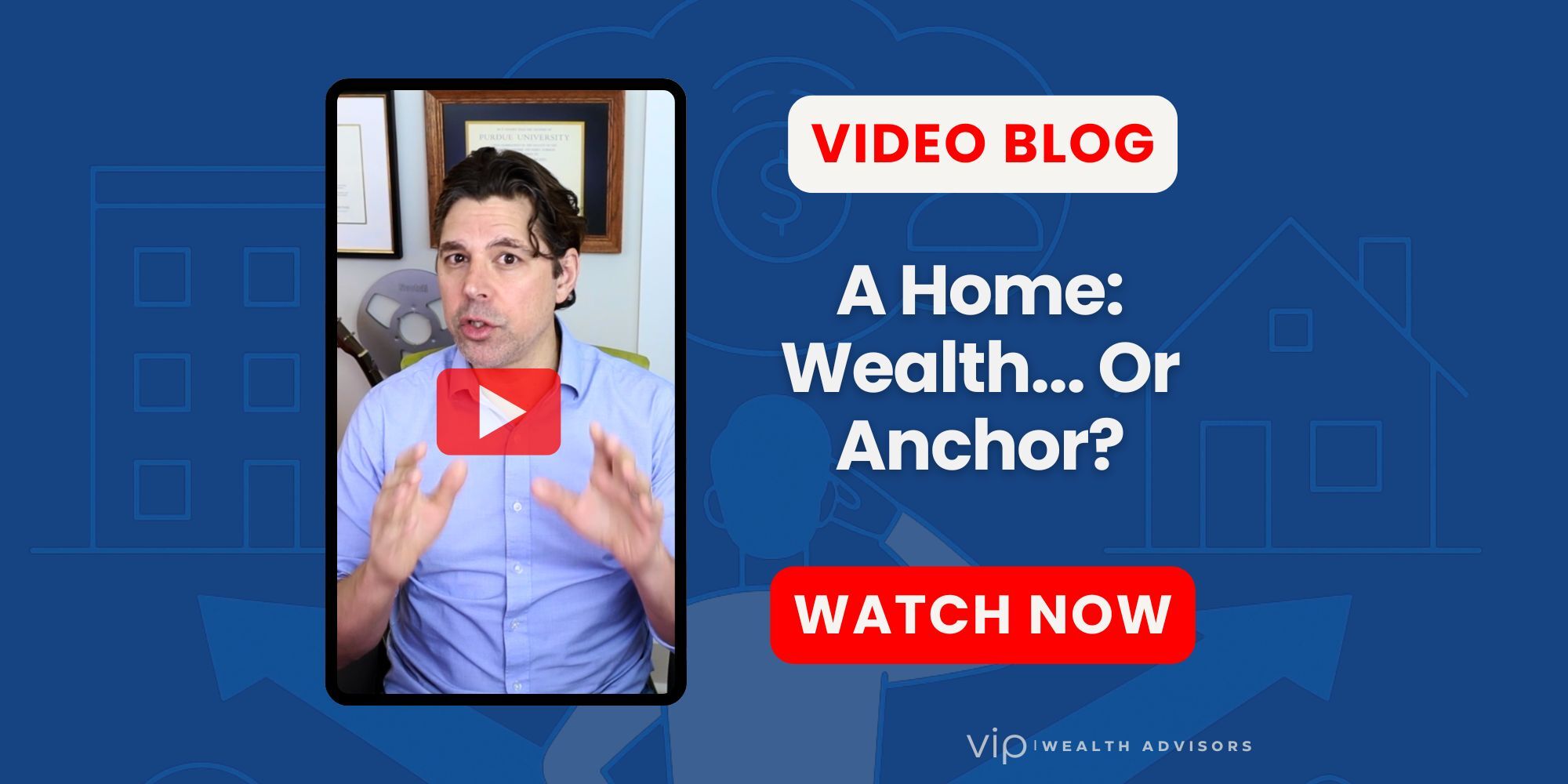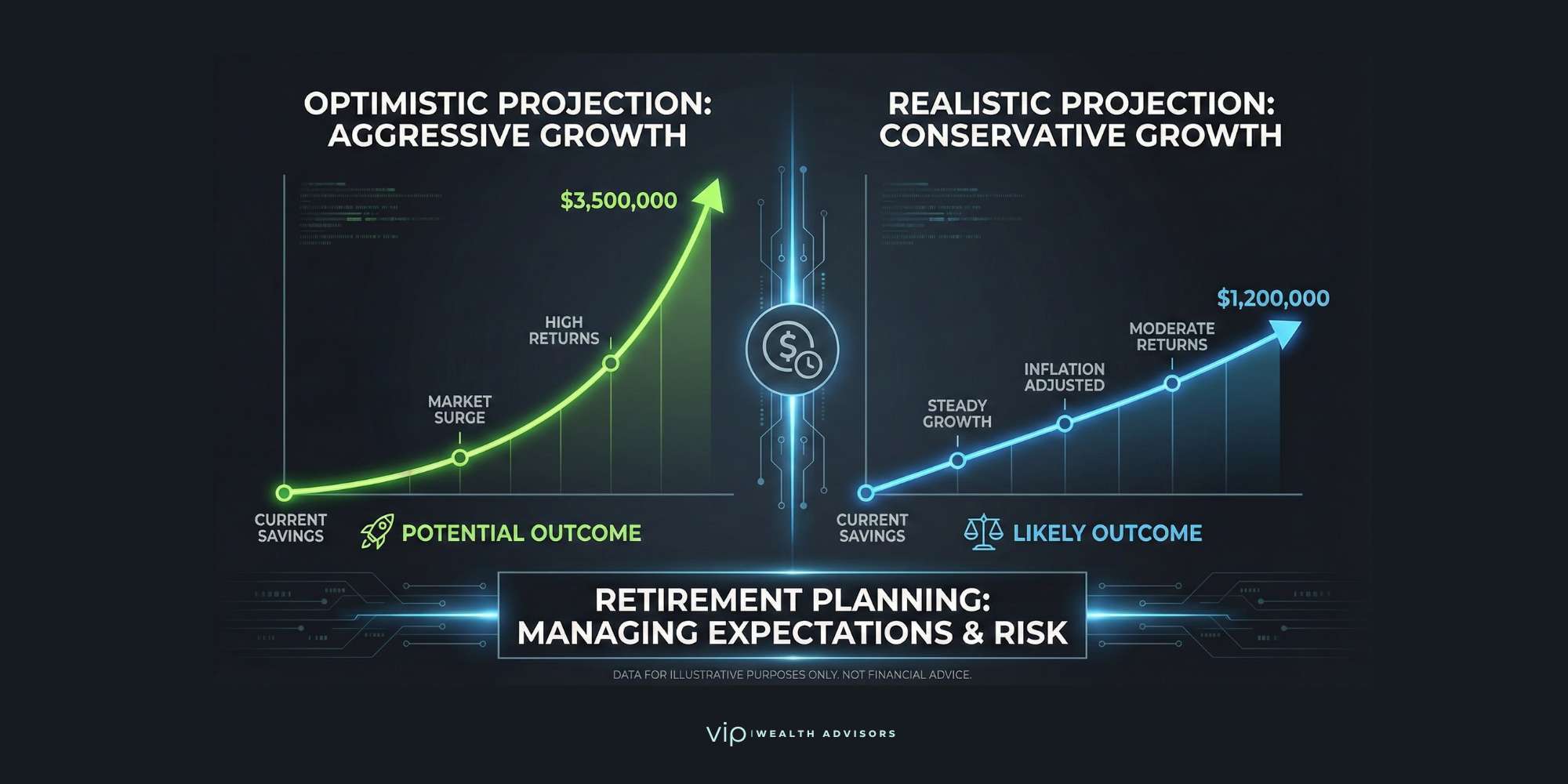Few financial decisions carry as much weight, or emotion, as whether to buy a home or continue renting. For many, owning a home is still tied to the "American Dream." For others, renting offers freedom and flexibility that ownership can't match.
So which one is better? The honest answer: it depends.
That may sound unsatisfying, but the truth is, buying vs renting isn't a one-size-fits-all equation. It's a decision that blends math, taxes, lifestyle, and long-term planning. With mortgage rates still high, housing markets tight, and new tax laws in effect for 2025, it's more important than ever to examine the whole picture before you sign a lease or a purchase agreement.
This article will walk you through the key factors you should consider, the real costs of ownership, the advantages of renting, and the powerful tax incentives that tilt the scales toward buying in certain situations. By the end, you'll have a framework for deciding what makes the most sense for your goals, not someone else's narrative.
The Emotional Pull of Homeownership
Let's start with the obvious: homeownership isn’t purely financial. It's also deeply emotional. A home represents stability, permanence, and identity. It's where families are raised, holidays are celebrated, and roots are planted.
Renting, by contrast, carries a reputation—often unfairly—of being "throwing money away." That stigma can push people toward buying before they're financially ready. The reality is more nuanced: renting can be the smarter move in many cases. But if you value control, personalization, and the pride of ownership, those lifestyle benefits have to be factored into the equation.
The True Costs of Owning a Home
One of the most common mistakes is comparing rent to a mortgage payment alone. That’s an incomplete—and often misleading—comparison.

When you buy a home, your costs go well beyond principal and interest. Here's what you need to include in your analysis:
- Property Taxes: Typically 1–2% of the home’s value annually. On a $750,000 home, that’s $7,500–$15,000 per year. High-tax states like New Jersey, Illinois, and California can be significantly more.
- Insurance: Homeowner’s insurance costs have surged, especially in areas prone to floods, fires, or hurricanes. Premiums can easily top $3,000–$5,000 per year in some regions.
- Maintenance and Repairs: A good rule of thumb is 1% of the home’s value annually. That’s $7,500 a year on a $750,000 home—though costs can spike unpredictably when a roof needs replacing or an HVAC unit dies.
- HOA Fees: If you buy into a condo or community, monthly fees can range from a few hundred dollars to over $1,000.
- Transaction Costs: Closing costs, property transfer taxes, and realtor commissions on resale all add up.
Owning a home gives you stability, but it also makes you responsible for every unexpected repair and market downturn. That’s the tradeoff.
The Advantages of Renting
Renting often gets dismissed as “wasted money.” That’s not accurate. Renters aren’t wasting money, they’re buying flexibility. And for many households, that flexibility can be a valuable asset.

- Predictable Costs: Rent is fixed for the term of your lease. If the refrigerator dies, that’s your landlord’s problem, not yours.
- Mobility: If your career may take you to a new city, or if you’re not sure you want to stay in your current location long term, renting gives you an exit ramp.
- Lower Upfront Cash Needs: Renters don’t need to come up with a down payment, closing costs, or reserves for maintenance. That frees up capital for investing, building businesses, or pursuing other opportunities.
- Avoiding Market Risk: If home values decline, renters are insulated from that volatility.
For households in transition—early-career professionals, people relocating, or families unsure about schools and neighborhoods—renting can be the more prudent option.
Taxes Tilt the Scales Toward Ownership
Here’s where the math starts to favor homeowners, especially for high-income households in 2025. The U.S. tax code still provides significant incentives to buy.

- Mortgage Interest Deduction: For those with significant mortgages, deducting interest can reduce taxable income meaningfully. Mortgage interest is deductible up to the first $750,000 of the loan amount.
- Property Tax Deduction: With the new SALT (State and Local Tax) cap lifted to $40,000 starting in 2025, many households in states like California, New York, and New Jersey will once again benefit from writing off property taxes in full. This is a significant shift from the $10,000 cap of prior years.
- Capital Gains Exclusion (IRC §121): When you sell your primary residence, you can exclude up to $250,000 of gains if single, or $500,000 if married, provided you’ve lived there two of the past five years. This is one of the few generous tax breaks still available to individuals.
- Step-Up in Basis: Upon death, heirs receive a step-up in cost basis to the home’s fair market value, effectively wiping out capital gains.
These tax benefits don’t show up in a simple rent vs buy calculator, but they can tilt the scales heavily toward ownership for households in high-tax brackets.
Market Conditions in 2025
The buy vs rent decision also depends on the broader housing and interest rate environment.
- Mortgage Rates: While rates of 6–7% feel high compared to the sub-3% era, they’re historically average. The bigger issue is affordability: higher rates limit the amount of house you can comfortably finance.
- Housing Supply: Inventory remains tight nationally, which has kept prices resilient despite elevated rates. In many markets, prices are still climbing, though at a slower pace.
- Regional Variation: Local math matters. In San Francisco, it may take over 12 years of ownership before buying beats renting financially. In Atlanta, the break-even point could be closer to 4–5 years.
That’s why generalizations about homeownership being “always good” or “always bad” miss the point. It’s highly regional and personal.
Opportunity Cost: Where Else Could Your Money Go?
A home purchase usually requires significant upfront capital: a down payment, closing costs, and reserves for maintenance. For some households, that money may be better deployed elsewhere—invested in a business, diversified in a portfolio, or held in liquidity to support flexibility.
This is especially true for high-income professionals with access to equity compensation, business ownership opportunities, or other vehicles with potentially higher returns than residential real estate. In those cases, renting while investing elsewhere may be a better long-term play.
A Framework for Deciding
So, how do you decide if buying or renting makes sense for you? Here’s a framework we use with clients:
- Time Horizon: If you plan to stay in the home less than 5 years, renting often makes more sense due to transaction costs and the risk of short-term price volatility.
- Cash Flow: Can you comfortably afford the mortgage, taxes, insurance, and maintenance without being stretched thin? If not, renting is safer until your income grows.
- Tax Profile: Do you earn enough to benefit from itemizing deductions? Will the new SALT cap enhance your tax savings? If yes, ownership provides more upside.
- Lifestyle Priorities: Do you value flexibility and mobility, or stability and control? There’s no correct answer; it depends on your stage of life.
- Alternative Investments: Could your down payment capital generate better returns elsewhere? If so, renting may provide more financial leverage.
Example: High-Income Household in California
Let’s illustrate with a simplified example.
A couple earns $600,000 per year in California.
They’re deciding between renting a home for $5,500/month or buying a comparable property for $1.5M with 20% down.
Ownership Costs:
- Mortgage (6.5% fixed): ~$7,600/month
- Property Taxes: ~$1,500/month
- Insurance/Maintenance: ~$800/month
- Total Monthly: ~$9,900
Renting Costs:
- Rent: $5,500/month
At first glance, renting looks cheaper by $4,400/month. But once you factor in:
- Mortgage interest deduction (~$55,000 first year)
- Property tax deduction (~$18,000 under the $40K SALT cap)
- Principal paydown ($13,413 first-year equity build)
The effective net cost difference narrows significantly. Over 7–10 years, ownership typically overtakes renting, especially if home values appreciate even modestly (say, 3% annually).
The Takeaway: Fit Matters More Than Formula
The buy vs rent debate is less about right or wrong and more about fit. Owning a home is both an expense and an investment. Renting is both a cost and a strategy.
The correct answer depends on your goals, cash flow, time horizon, and tax profile. For some, renting provides the freedom they need to pursue career opportunities and invest elsewhere. For others, homeownership delivers stability, equity growth, and valuable tax advantages.
The worst move? Making the decision based on slogans, peer pressure, or influencer soundbites. This is a personal, financial, and strategic choice that deserves thoughtful analysis.
A home can absolutely be a cornerstone of wealth. Or it can be a costly anchor. The difference comes down to planning.
🔎 Deciding Whether to Buy vs Rent a Home?
At VIP Wealth Advisors, we help high-income professionals cut through the noise on the rent vs buy a home debate. Our planning process goes beyond simple calculators to weigh the true costs of homeownership, the tax savings available, and the opportunity cost of tying up capital in a house.
Whether you’re evaluating your first home, upgrading, or considering renting longer to invest elsewhere, we’ll help you make a decision that fits your financial strategy and long-term goals.
📅 Book Your VIP Planning Call
View More Articles by Topic
- Taxes (81)
- Financial Planning (46)
- Equity Compensation (38)
- Investments (30)
- RSU (23)
- Tax Policy & Legislation (19)
- Business Owner Planning (17)
- Incentive Stock Options (16)
- Retirement (16)
- Psychology of Money (15)
- Alternative Investments (13)
- AMT (9)
- Pre-IPO Planning (9)
- Real Estate (9)
- Estate Planning (8)
- Fiduciary Standard (8)
- Crypto (6)
- NSOs (6)
- The Boring Investment Strategy (6)
- Capital Gains Tax (5)
- Private Investments (5)
- QSBS (5)
- Market Insights (4)
- Post-IPO Tax Strategy (4)
- 401(k) Strategy (3)
- Market Timing (3)
- Q&A (3)
- Stock Market (3)
- Venture Capital (3)
- Altruist (2)
- Charitable Giving (2)
- ETF Taxes (2)
- IRA Strategy (2)
- International Financial Strategies (2)
- Irrevocable Trust (2)
- Legacy Wealth (2)
- Video (2)
- AUM vs Flat Fee (1)
- Atlanta (1)
- Book Review (1)
- Carried Interest Planning (1)
- Depreciation & Deductions (1)
- Education Planning (1)
- Energy Markets (1)
- Precious Metals (1)
- QTIP Trust (1)
- Revocable Trust (1)
- Risk Management (1)
- Schwab (1)
- Solo 401k (1)








